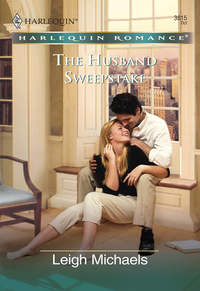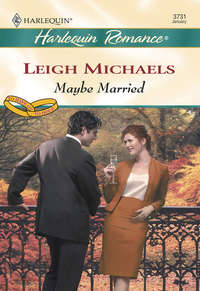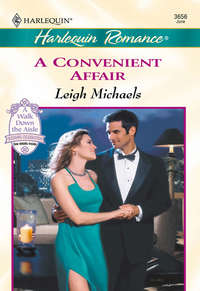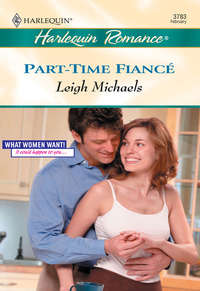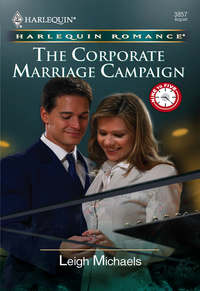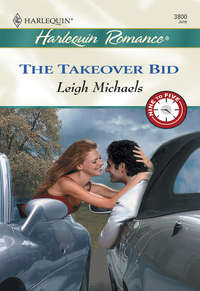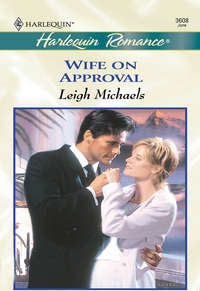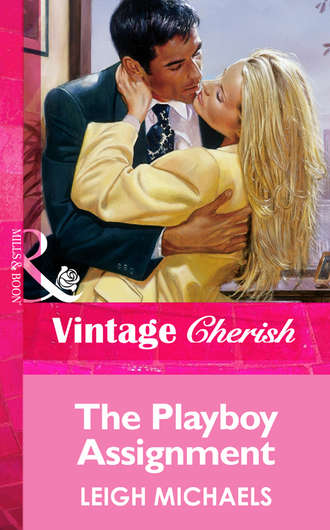
Полная версия
The Playboy Assignment
“I know. That’s why Rita asked me to come up and tell you—because she didn’t want to break into your call.” Alison paused in the doorway. “You and Pierce look like a matched set, by the way, except you don’t have a black tie and he wouldn’t look nearly as good as you do in that hat.”
Susannah paused as she adjusted the tilt of her hat. “You’re sure it isn’t just a little over the top? I don’t want to look like a professional mourner. But I did like the old man, and as a mark of respect...”
“Looks great,” Alison said. “If I could wear a hat with that kind of dash, I’d never take it off.”
Susannah smiled in spite of herself. “They really get in the way when it comes to being kissed, you know.”
“Just as I said—I’d never take it off.” Alison grinned and started up the stairs toward the top floor production room.
“If you’d stop being quite so practical, Ali, you’d have lines of men wanting to kiss you.”
Alison didn’t even pause. “Really? Well, since I don’t have time for that sort of nonsense, I’ll definitely have to look for a hat.”
Susannah made a face behind her partner’s back and turned toward the staircase to the main floor.
Pierce was standing in the receptionist’s office, hands clasped behind his back, shifting his weight from toes to heels and back again. He was staring at a framed poster which hung near Rita’s desk, but Susannah doubted he’d even seen it, or heard her come in. She was wrong on both counts.
Pierce stepped back from the poster and said, “I could get you something really nice to hang there.”
“On Tryad’s decorating budget? I doubt it.” She let her gaze run over him. In his dark suit he looked taller, but in fact his eyes were exactly on a level with Susannah’s when, as now, she was wearing heels. His tie wasn’t black, it was charcoal; Alison had been wrong: But she’d been correct about the rest. They couldn’t have patched more perfectly if they’d been dressed by a single designer. Rita, she noticed, looked impressed.
Pierce had left his tiny sports car in front of Tryad’s converted brownstone. He helped Susannah into the passenger seat, and she tried to keep her skirt from sliding impossibly high.
“At least it’s a pretty day,” she said as he got behind the wheel. “I wondered why the services were delayed so long, but it worked out beautifully, didn’t it? After the rain yesterday and the day before—” Why was she babbling? The urge to talk simply to fill the silence was a sensation she’d never felt with Pierce before, and it took Susannah by surprise. Theirs had always been an easy and professional relationship.
“The funeral was put off for the heir’s convenience.”
Susannah frowned. “What heir?”
“Didn’t I tell you what I’ve found out? The will currently in force was made more than ten years ago, and—”
Susannah interrupted with a long, low whistle. “You’ve put the delay to good use, haven’t you?”
Pierce shrugged. “I don’t know what use it is to know that Cyrus left everything he possessed to the son of an old flame.”
“Well, well,” Susannah drawled. “Who’d have thought it of Cyrus?”
“I know,” Pierce said bitterly. “It’s hard to believe that somebody as savvy as Cyrus was didn’t bother to update his will now and then, even if his financial circumstances hadn’t changed. A ten-year-old will is ridiculous... to say nothing of his leaving everything to somebody who wouldn’t even bother to cut his Hawaiian vacation short so the funeral could be held on time.”
“That wasn’t quite what I meant,” Susannah said. “It just occurred to me that perhaps the son of the old flame might be Cyrus’s son, as well.”
Pierce looked startled. “Oh, I don’t think—”
“Even Cyrus was young once. And now that I think about it, there was a certain twinkle in his eyes sometimes.”
Pierce snorted.
There were to be no church services, only a gathering in the cemetery. A surprising number of cars were already parked along the narrow, winding roads which cut the grand old cemetery into segments, and Pierce had to park at a distance. Susannah glanced from the gravel lane to her shoes, and sighed.
But before they’d gone far, the inconvenience of walking across grass and gravel in heels had given way to Susannah’s love of old cemeteries. She’d almost forgotten how much she loved graveyards, full of elaborate monuments and family histories carved in stone in a kind of shorthand only the initiated could read. She’d been good at that, once, deducing from names and dates what had happened to the people who lay below the quiet sod. But she hadn’t gone exploring for years now. Eight years, to be exact....
“But how do you know?”
The question echoed in her head, in an almost-plaintive baritone that she hadn’t heard in the better part of a decade. Funny, she thought, that she could still hear it so clearly...
“How can you tell from a tombstone that life was rough for women?” Marc had asked on a crisp November day, as he stood beside her in an old cemetery in a far north suburb of Chicago. “It’s a man’s tombstone, at that.”
“That’s right,” Susannah had said. “The monument is for the patriarch, but look on the back at the list of names. His three wives didn’t even get a stone to themselves. He married them one at a time, of course, but now they’re all lying here bedside him, together for eternity.”
“But how?” Marc had asked, very practically. “He’s only got two sides.”
Susannah had found the comment hysterically funny, and she’d finally wobbled over to a low flat stone nearby and sat down to recover from her fit of laughter..But in fact she’d never managed to get her breath back, for Marc had joined her there, and kissed her...
And she hadn’t walked in a cemetery since.
“What a nuisance this is,” Pierce said. “Trust Cyrus to make things inconvenient.”
“Shush.” They were getting close to the small tent where the crowd had gathered. A soft breeze tugged at Susannah’s hat and ruffled the corners of the American flag covering the casket.
She hadn’t known that Cyrus had been in the armed services. But then, Susannah thought, there seemed to be lots of things that they hadn’t known about Cyrus.
They were almost the last to arrive, and only a few moments later a man in flowing robes began the service. Susannah tipped her head a little, allowing the wide brim of her hat to shield her eyes as she glanced around the crowd.
She saw a few vaguely familiar faces, but no one she knew well. And try as she might, she couldn’t locate any likely candidate to be—what was it Pierce had called him? The son of the old flame, that was it. No one stood out from the crowd. There was no row of chairs, no one obviously fighting strong emotion...
Perhaps, she thought, Pierce was wrong and the heir hadn’t showed up after all?
The service was brief. From a distant hillside, a rifle salute cracked the air, taps sounded, and an honor guard briskly and efficiently folded the flag which had covered Cyrus’s mahogany casket.
Susannah watched with interest as they presented it to a man standing nearby. But all she could see was the back of a well-groomed head and a brilliant white shirt collar showing between sleek black hair and a gray pin-striped suit. Not black, she thought, with interest.
“That must be the old flame’s son,” Pierce muttered into her ear. “Wish I could get a better look.”
The pastor said a final prayer, then looked out over the crowd, drawing them all together with his gaze, and said, “It was Cyrus’s request that everyone who attended this service be invited back to his home immediately afterward, for a party.”
Susannah smothered a gasp. “That’s macabre!” she whispered.
“What it is,” Pierce muttered, “is a waste of money the museum could have put to far better use. A party! What nonsense.”
But instead of turning back toward the city, Pierce followed the trail of cars toward the western suburb where Cyrus had lived.
“Wait a minute,” Susannah said. “Surely you don’t intend to go to the party, Pierce. Both of us think it’s bad taste—”
“That’s beside the point,” Pierce said grimly. “Odds are the old flame’s son has equally bad taste, or he wouldn’t have gone along with the idea.”
Susannah thought about that sleek dark head, and frowned. “I don’t quite see—”
“He probably doesn’t have a clue about what to do with Cyrus’s old pictures. Maybe he doesn’t even realize that they’re important. So maybe I can introduce myself and make another stab at the collection.”
“Pierce, isn’t it time to give up?”
“What kind of PR person are you, anyway? We can’t lose by just asking. You’d feel like an idiot if he gave it to somebody else—or threw it away—because we didn’t tell him we’re interested.”
He was right. In any case, she was going to end up at the party, since throwing herself out of a moving car didn’t strike Susannah as much of an option. So she might as well give the idea a stab.
Cyrus Albrecht’s house wasn’t just a Queen Anne, she realized as Pierce pushed open the wrought-iron gate to the front walk. It was the most elaborate Queen Anne she’d ever seen. Towers and porches and balconies sprouted from everywhere she looked. The details of gingerbread and moldings and finials had been picked out in a palette of soft greens and browns, with an occasional startling touch of red.
“It would make a great haunted house,” she said. “All it needs is a full moon and a few spider webs. But I don’t see it as a full-fledged art museum—there can’t be enough big walls.”
Pierce shrugged. “We could have built a new wing. But that’s out of the question now. This house is worth a fortune, the heir wouldn’t even consider donating it.”
Susannah paused. “The paintings are worth a fortune, too.”
“But everybody has an idea what a house like this will sell for. On the other hand, to an inexperienced eye, the paintings might not look like much at all.”
“Pierce, you can’t misrepresent—”
They reached the front door, standing open to the summer breeze, and the murmur of the crowd reached out to them. Susannah knew her protest would carry back inside, so she bit her tongue and resolved to have it out with Pierce later.
They stepped across the threshold into the enormous dark-paneled front hall. Despite Susannah’s hat, the change from sunlight to dimness blinded her for an instant. Before she saw the heir, who stood with his back almost squarely to the door, Pierce had already moved toward him, pulling her along. His right hand went out, demanding the heir’s attention, and in the deepest voice she’d ever heard Pierce use, he said, “I’m sorry we meet on such a sad day. I was a friend of your.... I mean, of Cyrus’s. I have a bit of an interest in art, too, you see.”
Susannah stared up at him in shock. A bit of an interest?
“Indeed,” the heir said, and his voice echoed through Susannah’s brain like the boom of a cannon.
Like a wooden marionette who could move only one joint at a time, she turned away from Pierce toward the heir. Under the wide brim of her hat, she spotted the monogram on his shirt cuff as he reached out to shake Pierce’s hand. MDH, it said, in delicate embroidery.
MDH... Marcus David Herrington.
Marc, who had been the single biggest mistake Susannah Miller had ever made. Marc, who had prompted the most disastrous idea of a long and varied series.
Marc...
Slowly, afraid of what she would see, she lifted her eyes to his.
CHAPTER TWO
EVEN as she raised her head to look at him, Susannah told herself it was impossible. The Marc Herrington she’d known hadn’t even owned a necktie, much less a pin-striped suit, and he was far more likely to flash a rude slogan on the front of a sweatshirt than his initials embroidered on a cuff.
Impossible.
She’d set herself up, that was what had happened. The walk through the cemetery had prompted her to think of Marc—and once those memories had been activated, all it took to set them spinning out of control again was a baritone voice and a chance monogram....
It was quite a coincidence, those initials. But the voice was easily explained; this man did sound a little like Marc—or, to be more accurate, her eight-years-old memory of Marc.
Susannah fixed a smile on her lips so she could properly greet a man who was not—who could not be—Marcus Herrington.
And she looked up into a pair of wide-set brown eyes, surrounded with a forest of long, dark, curly lashes. Eyes she had thought, once or twice, that she could drown in. Including that day eight years ago in the cemetery, when he had kissed her so long and so well that her scattered senses had allowed the worst idea of her life to look like a winner.
Marc’s eyes. It was impossible—but it was also undeniable.
“Well,” he said. In his rich baritone, the single word seemed to carry an entire encyclopedia of meaning. Or did it only seem that way to Susannah’s guilty conscience?
Not guilty, she reminded herself. She’d been foolish, yes—and impetuous and perhaps even idiotic—but she had nothing to feel guilty about.
She held out her hand to him and willed her voice to stay steady. “Marc.”
His hand was warm and firm and strong. Susannah’s fingers felt fragile and shaky in his grip.
Pierce stared down at her. Though he was obviously thunderstruck, he recovered in moments. “You know each other? But—but that’s wonderful! Old friends, I suppose?”
Prompted, Susannah stumbled through the introductions.
“Marcus Herrington,” Pierce said thoughtfully. “I don’t believe I’ve heard the name.”
“Oh, of course Susannah wouldn’t have mentioned me,” Marc said. Only the slightest emphasis set the last word apart, but there was no more doubt in his voice than there was humor in his smile.
Irritation surged through Susannah’s veins. His meaning could hardly have been clearer even if he’d come straight out and said they’d been lovers. Of course, if he had, she could not only have denied it, but any listener would have doubted his motives. This was far more cunning. The implication was perfectly obvious—she could see from the expression in Pierce’s eyes that he’d gotten the message loud and clear. And yet Marc hadn’t really said a thing.
“No, I don’t believe I ever brought up your name,” she said coolly. “You were hardly important enough.”
Marc lifted his eyebrows. “But of course, my dear. What else could I possibly have meant?”
That you were too important to talk about. Which was precisely what Pierce was thinking right now.
Susannah’s annoyance was mixed with reluctant admiration at the way he’d so neatly boxed her into a corner. The Marc she’d known had been as transparent as glass. Just when—and how—had the man learned to be so smooth?
Not that it mattered, Susannah told herself firmly, what Pierce—or anyone else—thought.
Marc had turned back to Pierce. “It’s rude of me to bring up ancient history. You shared Cyrus’s interest in art, you said?”
The tinge of irony in Marc’s voice was so subtle that Susannah almost doubted her own ears, despite the demonstration she’d just suffered at his hands. For an instant she wondered if he’d recognized Pierce’s name, and therefore doubted the casualness of his interest. But she concluded that wasn’t likely; the Dearborn was far from prominent as yet, and its director was hardly a household word across the country.
Then she followed Marc’s gaze over Pierce’s shoulder to one of Cyrus’s favorite and most recent acquisitions, and knew why he was feeling ironic.
“I find his taste—shall we say, interesting?” Marc went on. “Personally, I’d probably use that thing to wipe the mud off my shoes.”
Susannah braced herself.
The work was a long way from being her favorite. The artist—and she used the term loosely where Evans Jackson was concerned—had used a housepainter’s bush to smear three slashes of blood-red pigment on a huge white canvas, and then left it to drip. Susannah thought it looked like something from a butcher’s shop.
Pierce, on the other hand, considered the painting a master work. When he’d taken Susannah to the gallery to see Cyrus’s new purchase, Pierce had been shocked by her lukewarm reaction. He’d spent the next half hour instructing her on artistic genius and the intricacies of expressionistic symbolism—at least Susannah thought that was what he’d called it. Her eyes had begun to glaze only a couple of minutes into the lecture.
She couldn’t wait to see Marc’s reaction to that same speech.
Pierce, too, had turned to look at the painting. “Oh, well, that sort of thing,” he said tolerantly. “Cyrus would have his little jokes now and then.”
Susannah blinked in surprise, remembering the outlandish price he’d told her Cyrus had paid. Then the metallic taste of fear rose in her throat. She’d forgotten, for just a moment, Pierce’s implication that he only dabbled in art. Surely, she thought, he wasn’t crazy enough to continue that charade, now that he’d had a chance to take Marc’s measure...
“Not all the collection is so blatant,” Pierce went on. “Cyrus actually had a few pieces which aren’t half bad.”
A voice in the back of her brain told her to stop him, no matter what it took, before he offered to do Marc a favor by taking the problematic pieces off his hands. But she was mesmerized by the pressure of Pierce’s fingers on her elbow, and unable to protest.
“Blatant,” Marc murmured. “What an interesting choice of words.”
“In fact,” Pierce went on, “if you’re looking for someone to help value things for the estate—”
“That’s very thoughtful,” Marc said. “I wonder where Joe Brewster went. He’s the one who’ll handle all that.” He glanced around the foyer, his six extra inches of height giving him the advantage of being able to look over most of the crowd, and gestured to someone Susannah couldn’t see.
Joe Brewster. The name hit her like a rock. Brewster was Cyrus’s attorney—the one Pierce had talked to about the will. If Joe Brewster recognized Pierce’s name...
Pierce, however, seemed unconcerned. His smile was firmly in place.
A short, round man hurried up. “You wanted me, Marcus?”
“Joe, I’d like you to meet Susannah...” Marc paused.
Doesn’t he even remember my name? Susannah thought irritably. “Miller,” she said coolly.
“Still? Or again?”
Susannah felt marginally better. Marc’s hesitation made sense after all; there was a good chance that in eight years she’d have married—and perhaps divorced, as well. At least he hadn’t assumed she’d married Pierce; maybe she should award him a point or two for that. “Still.”
“What a shame,” Marc said softly. “I seem to remember you were determined to have a wedding. And with good reason, too.”
Fury rose in Susannah’s throat. And if he solicitously asks what went wrong with my plans, she thought grimly, I’ll strangle him!
But Marc had moved straight on to introduce Pierce. “He’s offered to help appraise Cyrus’s collection, Joe.”
The attorney stretched out a hand. “That’s very generous of you, Mr. Reynolds. Your opinion would be valuable. As the director of the Dearborn—”
Pierce’s fingers tightened on Susannah’s elbow; it was the only sign of surprise she could detect. “Actually,” he said casually, “I didn’t exactly volunteer my services. The time constraints which come along with my job prevent me from doing appraisals. What I meant to say was, if you’d like help valuing the estate’s art, I’m sure Susannah would be happy to pitch in.”
Susannah opened her mouth to protest, and closed it again. She felt like a balloon with a slow leak. Now she knew that tightened grip of Pierce’s hand hadn’t been due to surprise after all; it had been more in the nature of a warning. He’d had this planned all along.
She could feel Marc’s gaze drifting over her face, appraising every feature, every expression. “And Susannah is...qualified?” he asked.
She couldn’t stay silent any longer. “Pierce, I hardly think that I—”
“Nonsense,” Pierce said firmly. “Of course she’s qualified. Don’t underestimate your talent, Susannah.”
“Or your resources,” Marc added, very gently. “You know, Joe, I believe I just might take more of an interest in Cyrus’s collection myself—under the circumstances.”
His hand still on her elbow, Pierce guided Susannah across the foyer and into the broad hallway that led toward the dining room at the back of the house. Most of the crowd had moved on toward the buffet tables, and for a few moments, in the shadow of the staircase, the two of them were completely alone.
“I think that went very well,” Pierce said.
The note of self-satisfaction in his voice grated on Susannah’s nerves. “Then all I can say is that I’d like to see your definition of a disaster. The only thing that could have made it worse was if you’d offered to buy everything outright at some bargain-basement price.”
Pierce tipped his head to one side and considered. “It’s an idea. Herrington might actually have gone for it.”
Susannah went on ruthlessly. “But Mr. Brewster would know you were trying to scam his client, and then you’d be in the soup and the museum would lose all credibility.”
“That’s an interesting point,” Pierce mused. “Why he knew me, I mean—I didn’t mention the museum when I called about the will. Cyrus must have told him about me along the way. Susannah, do you really believe I’m so shortsighted I’d try to pass myself off as an amateur?”
“It looked to me as if you were making a pretty good. stab at it.”
“I did nothing of the sort. I simply didn’t boast of my position, my education, or my background. If the man wanted to draw conclusions—”
Susannah stood her ground. “You deliberately tried to convince him that the Evans Jackson canvas is worthless.”
“I was being diplomatic. Feeling out his tastes. Trying to establish a bond. All good gallery owners do that sort of thing, or they’d never sell a single piece. It’s no thanks to you, by the way, that I read him so clearly. Why didn’t you tell me you knew him?”
“Because I didn’t know it myself till it was too late to run,” Susannah admitted.
“You did look a little stunned,” Pierce admitted. “What was all that stuff about weddings, anyway? You didn’t marry the man, did you?”
“No.” Susannah’s throat was dry, her voice taut.
“That’s good. If you had, I’d really wonder about your judgment. I grant you, for a couple of minutes I was a bit unsure about him, myself. His clothes weren’t bad, not bad at all. And the name... I wonder how somebody like that ended up with such an aristocratic name.”
“Funny,” Susannah muttered. “My mother asked almost the same thing once.”
“But I knew as soon as he looked blankly at that magnificent Evans Jackson canvas that my first instinct was right.” Pierce shuddered. “The very idea of threatening to wipe his feet on it! I only hope Evans doesn’t hear what I said about his work.”
“I doubt the two of them hang around in the same circles.”
Pierce laughed. “That’s certainly true.”
“And all good gallery owners talk that way, don’t they, to gain the customer’s confidence?” Susannah didn’t even try to keep the sarcasm out of her voice. “Pierce, about this assignment you’ve saddled me with... Surely you don’t expect me to pass myself off as a staff member, because I won’t do it.”
“Oh, no. We’ll refer to you as—let’s see...”
She cut in ruthlessly. “We’ll call me exactly what I am—the museum’s public relations representative.”
“Actually,” Pierce mused, “that’s ideal. Because of your inexperience—”
“I thought you told Marc I was qualified.”
Pierce shrugged. “I didn’t say expert. So any errors can easily be passed off—”
“Are you saying you want me to make errors?”
“Susannah, my dear, you’ll have all of the museum’s resources to draw on. And I expect you to use all the expertise the Dearborn can provide. Including me.”
“I suppose that means you’ll make the errors? Never mind.”


